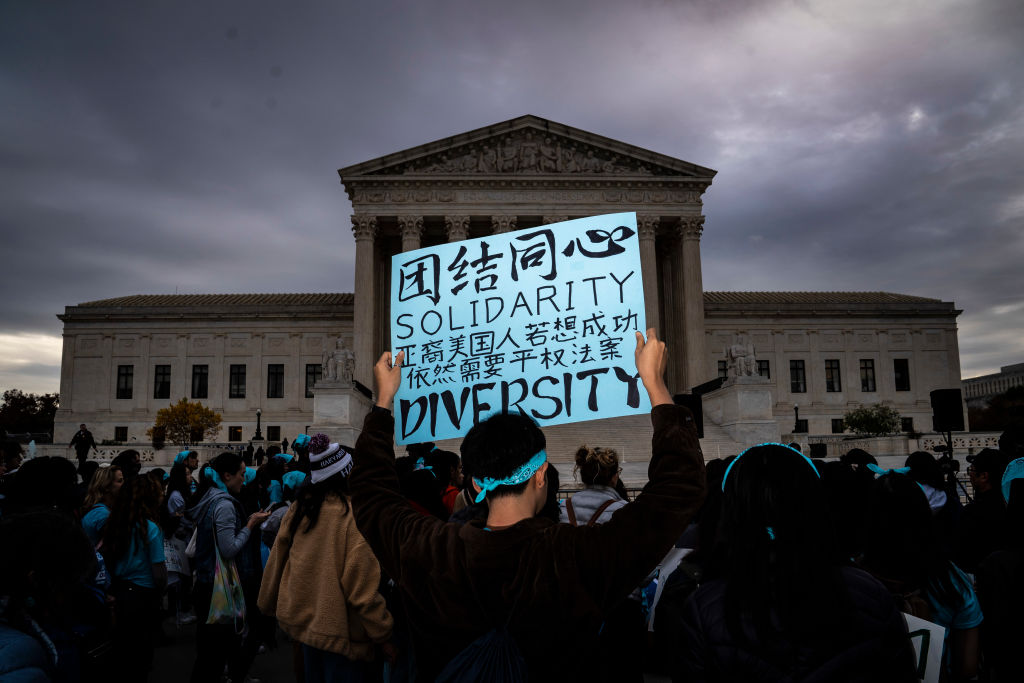Affirmative Action Programs Could Increase Teacher Diversity
Op-Ed: Affirmative Action Expands Opportunities For Future Teachers And Their Students

Source: The Washington Post / Getty
The Supreme Court heard oral arguments in Students for Fair Admissions v. Harvard and Students for Fair Admissions v. University of North Carolina, which will rehash the same debates about the necessity of affirmative action in college admissions. And so the cycle continues, nearly seven years after the Supreme Court opened its doors in Dec. 2015 to hear oral arguments in Fisher v. The University of Texas at Austin. As one of three UT students present at the hearings and a former president of the Black Students Alliance at UT Austin, I could not be more exasperated at the idea that the use of race and ethnicity in the admissions process is up for debate again. Has the need for affirmative action ot already been justified through our perspectives, our stories and our lived experiences?
A few months before my first year of elementary school, my parents divorced, and our family moved from Dallas to Mesquite. My mother believed this was the best decision for her two sons based on her hope that the education that we would receive at Mesquite local schools would be stepping stones to higher education and successful careers.
But what neither one of us could have anticipated was the impact that the lack of diversity would have on the next 12 years of my schooling experience. A few memories are etched into the walls of my mind that cannot be forgotten.
I remember none of my teachers sharing my same skin complexion.
I remember not seeing any books in the library with main characters with my physical features.
I remember being bored in school; nothing seemed to connect with my experience.
I remember our textbooks—filled with the accomplishments and achievements of Americans, but few who looked like me.
I remember learning about Black people in our history class, but they were always enslaved.
I remember getting straight As.
I remember swearing that I would never become a teacher because my school didn’t value me.
My mother worked tirelessly for our family while being heavily involved in every school activity. Together, we had to go above and beyond to make sure that I could have the same opportunity that white students sitting in the same classroom with me were already afforded based on their lived experiences. I was fortunate enough to attend The University of Texas at Austin as a student who was accepted under the university’s top ten percent rule. Despite the academic accolades and accomplishments I received while in school, I still benefited from affirmative action policies.
College was pivotal in shifting my life trajectory and positioning me toward becoming an educator. This was the first time in my entire educational experience that my identity was centered through my classes inside the African & African Diaspora Studies department. I finally believed that education was a space where I belonged. I experienced firsthand how important a diverse campus is to foster a meaningful living and learning experience.
Affirmative action only exists alongside racial inequity. We know that the current admissions process used by colleges and universities needs to produce the type of diversity and equity that is needed. Affirmative action aims to hel colleges ensure that all prospective students, especially students who have had to navigate challenging school experiences, have an equitable opportunity to access higher education at their institutions.
Affirmative action is not only critical to college diversity, but as an educator, I see how the lack of diversity on college campuses impacts our nation’s teaching force. The most important requirement to be able to pursue a teaching career is a bachelor’s degree. But you can’t earn a college degree if you don’t have the same opportunities to get accepted into college. This leaves us in the position now that only 2% of teachers identify as Black men, and only 5% identify as Black women.
As a teacher, I see daily how students of color face more challenges to educational success due to circumstances outside their control. Colleges continue to admit fewer students of color because of the lack of ability to holistically review the student’s experiences including race. This leads to fewer students of color graduating from higher education institutions to enter careers and a diverse workforce.
The students who walk through the doors of our schools every morning shouldn’t have to wait until college to be able to have access to a diverse set of teachers. High school seniors shouldn’t be worried that their full story isn’t included in the college admissions process—and they shouldn’t have to wait on us to break the cycle.
David McDonald, Founder & Managing Partner at Education PowerED and the University of Texas at Austin Alum
SEE ALSO:
Asian American Students Sound Off On Protecting Affirmative Action Ahead Of SCOTUS Oral Arguments
















